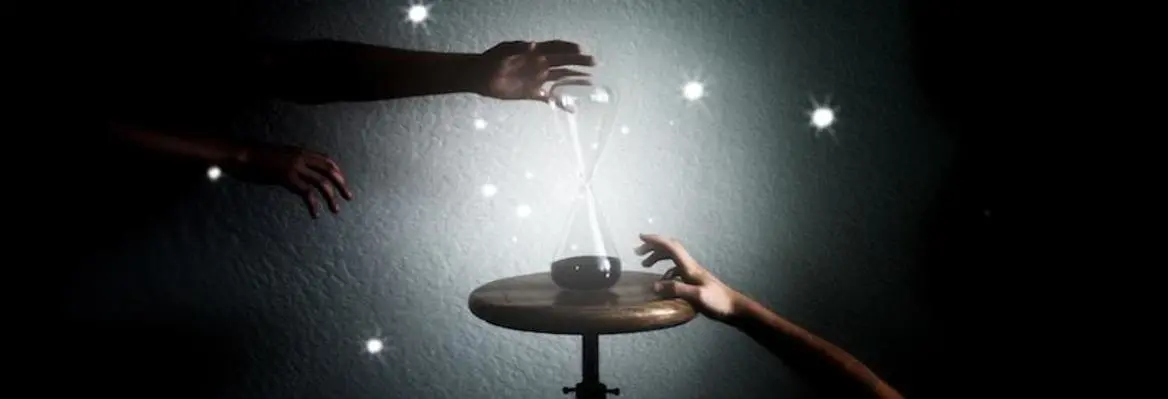Time is everywhere we are. Maybe that’s why we take a lot of things about it for granted: for example that the past is fixed and unchangeable, and that the future is open and changeable.
When is now? As crazy as the question seems at first – after all, now is, surely, right this moment in the present – we also realise that any instant of now will be over before the thought is completed. The present is an amorphous period with fuzzy edges within a continuum of past and future, so we don’t know where it begins or where it ends. All we can know is that our now instantly becomes the past. Although we seem to feel and know what the present moment means that doesn’t make it a temporal fact. Vienna Circle philosopher Rudolf Carnap recounted how Einstein told him that ‘the experience of the now means something special for man, something essentially different from the past and the future, but this important difference does not and cannot occur within physics.’
According to Einstein’s theory of relativity, time is not absolute but relative, and dependent on the location of the events that are being timed. There is no one ‘now’, in fact, since it is impossible that two distinct events occur at the same time if those events are separated by space. Now is different for each person. We do not see things at the same time as anybody else does. Since two people cannot be in exactly the same place at the same time, the light from, say, an apple, takes different lengths of time to reach each person. As Leibniz put it, there cannot be two identical objects, since even if they seem similar in all properties, such as shape, colour, etc., they are different because they are in different locations. The fact that no two people see the same apple (because they are seeing it at different times) means there can be no claim as to which the real apple is. To put it starkly: since everyone looking at an apple sees it differently, there is no one objective apple; everyone sees it subjectively from their temporal point of view.
___
"There is never ‘now’, since it immediately moves to the past, into our memory"
___
What I am claiming goes even further: not only is there no one, individual now, there is never ‘now’, since it immediately moves to the past, into our memory.
So, arguing that the present doesn’t actually exist is a reasonable conclusion – if we think of ourselves as being in constant change, continuously moving back into our memories. There is no getting away from this non-intuitive position. This has consequences on our identity too: we will always see things at a fractionally different time to everyone else, even to ourselves. So, we will never see ourselves as we are, but as we were!
But do we know what we were truly like? Our memories are often precarious and dissimilar from other people’s, even if they regard an event we witnessed together. Yet this shouldn’t surprise us, since there never is ‘a same event’, and so there cannot be one memory recalling that event. Moreover, our own memory is itself constantly changing.



















Join the conversation